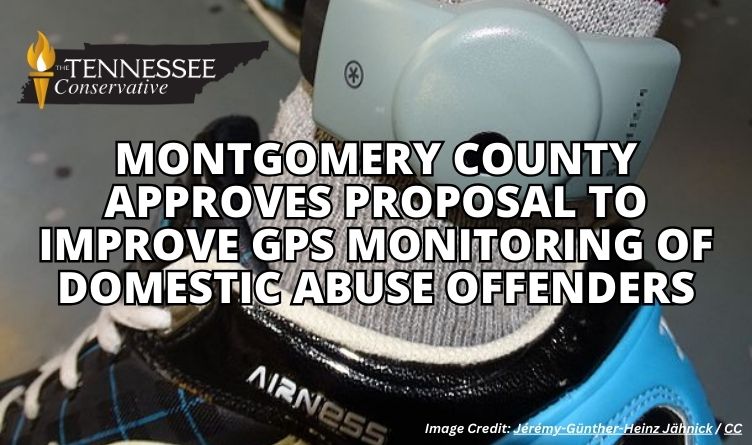Image Credit: Jérémy-Günther-Heinz Jähnick / CC
The Tennessee Conservative Staff –
The Montgomery County Budget Committee has approved a new plan that would allow more GPS vendors to contract with the county, allowing the county to be in compliance with a new state law requiring domestic violence offenders to wear GPS-monitoring ankle bracelets while out on bail.
The Electronic Monitoring at Will Service Agreement was approved during the Budget Committee meeting on October 22 and has been forwarded to the Montgomery County Commission for final approval.

County Commissioner Jonathan Gannon noted, “The agreement was made to get more qualified companies to be used as vendors,” rather than relying on just one vendor.
According to the state’s Debbie and Marie Domestic Violence Protection Act, individuals charged with aggravated assault against a domestic abuse victim are required to wear a GPS device to be released on bail. If an offender violates any bond conditions, including removal of the device or approaching the victim, both the victim and the appropriate responders will be notified immediately. Offenders must cover the cost of the monitoring system.
The law requires counties to enter into a written agreement with a qualified GPS provider. According to County Attorney Tim Harvey, these agreements sometimes take months to finalize, so the resolution was approved while those agreements are being completed.

While many counties have implemented the initial tracking requirements of the law, none have yet adopted the provisions related to victim notification. The law mandates that victims be given access to an app or device that alerts them if the offender is nearby. Montgomery County may become the first in Tennessee to offer this service.
The state law emphasizes confidentiality, ensuring that the victim’s location remains private. Harvey pointed out the challenge of determining “how the victim can give away information to the court and not give away confidential locations information to the public.” These issues will need to be resolved before the system can be fully implemented.





One Response
WIN!